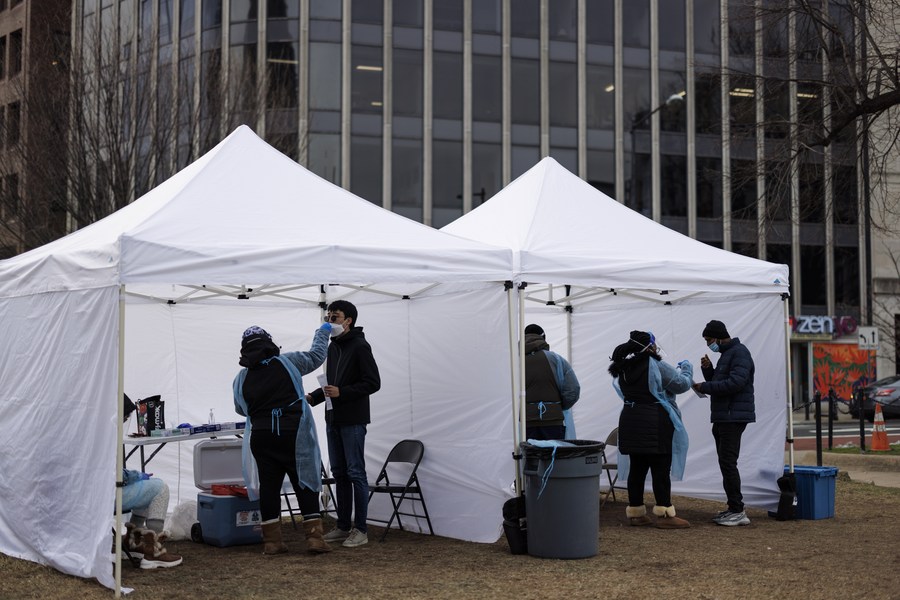Lack of accurate information "one of the greatest failures" of U.S. COVID-19 response: media

Medical workers take nasal swab samples for COVID-19 testing in Washington, D.C., the United States, on Jan. 13, 2022. (Photo by Ting Shen/Xinhua)
"Lack of accurate, real-time information was one of the greatest failures of the U.S. response to the COVID-19 pandemic," said Tom Frieden, former director of the U.S. CDC.
NEW YORK, Feb. 11 (Xinhua) -- Public health officials in the United States are frustrated by a fractured and undervalued health data infrastructure in the battle against COVID-19, calling lack of accurate and real-time information "one of the greatest failures of the U.S. response to the COVID-19 pandemic," CNN reported.
As the Omicron wave recedes in the United States, public health officials are faced with a new round of decision-making on the best way for the country to move forward, but they are challenged by "a fractured and undervalued health data infrastructure," the report said Thursday.
It is a problem that has long plagued the United States and one that has hindered the ability to respond swiftly and pointedly to the COVID-19 pandemic since the beginning, it said.
"Our data modernization infrastructure for governmental public health is just really nonexistent. So when you think about having to pivot quickly with new metrics and how that data gets collected and reported and accumulated, aggregated, de-aggregated, it can be daunting," Lori Tremmel Freeman, chief executive officer of the National Association of County and City Health Officials was quoted by CNN as saying.
"It's difficult not just during pandemic times, but even more difficult during the pandemic," he said.
The data failings of U.S. public health system are many and varied, tainting nearly every decision-driving metric in one way or another.
"Lack of accurate, real-time information was one of the greatest failures of the U.S. response to the COVID-19 pandemic," Dr. Tom Frieden, former director of the U.S. Centers for Disease Control and Prevention, said.
Photos
Related Stories
- U.S. inflation hits fresh record in nearly four decades
- New Pew study finds increasing public criticism, confusion over COVID-19 response in U.S.
- Will Iran, U.S. reach consensus to salvage Iranian nuke deal as Vienna talks enter final stage?
- U.S. "genocide" allegation is lie of century: spokesperson
- Coronavirus claims over 80,000 lives in 2nd largest U.S. state Texas
Copyright © 2022 People's Daily Online. All Rights Reserved.










